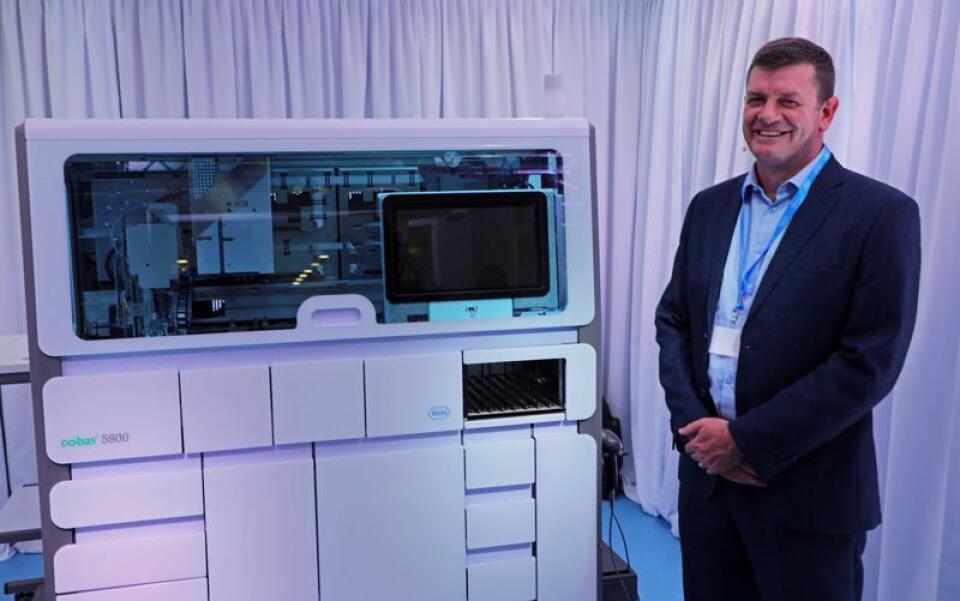Analyzing Botswana’s Biohealth Improvement through Cobas 5800

The fields of science, medicine, research and development, and pharmaceuticals all intersect in biohealth (medications, vaccines, and devices). The industry primarily focuses on human health through the identification and diagnosis of health hazards as well as the prevention and treatment of those risks, which includes the manufacturing and distribution of pharmaceuticals, medical equipment, and vaccines. Since it helped with the crucial research and creation of the COVID-19 vaccine during the past year, the biohealth sector has been at the forefront.
In Africa, the struggle for good health services is still much of a struggle. With technological advancement in health services offering more than just a few innovative services, Africa has lacked the structural and financial infrastructure needed to offer advanced health services. Biohealth should be a vital sector of every nation and its benefits include the delivery of sophisticated health care services.
In recent years, the widespread usage of biotechnology by a large portion of the global population has been essential for pharmaceutical development. Although at varying stages of development, many developed and developing nations throughout the world have embraced telemedicine as a proactive method of providing health services to their citizens. In Africa, Botswana became the first SADC country to launch the latest molecular testing technology from Switzerland’s largest biotechnology company, Roche Diagnostics.
Health Service in Botswana
Despite being recently classified as an upper middle-income nation, Botswana has a lack of resources, both human and technological. There are obstacles in the way of healthcare professionals’ access to medical knowledge as well as patients’ access to specialized care. With a population of over 2 million people and 45% of them living in rural regions, Botswana has a population density of 4 people per km2, a low doctor-to-patient ratio of 3.8/10,000, and a high prevalence of HIV/AIDS (22.8% for people aged 15 to 49).
The majority of medical experts live in metropolitan regions, and there are few of them—for instance, there is just one dermatologist working in the public health sector. According to the Abuja Declaration of 2001, the government will devote 15% of the GDP, or US$756 million, to health in the 2018–2019 fiscal year. According to Botswana’s Ministry of Health and Wellness’ “Integrated Health Services Plan” (IHSP), the national health delivery system is divided into six levels: Francistown, Gaborone, and Lobatse are among the 3 tertiary (referral) hospitals that offer these services. There are also 18 general hospitals, 17 basic hospitals, 318 clinics (104 of which have beds), 347 health posts, and 973 mobile stops that offer similar services.
Botswana’s Biotech Interest
In November, Diagnofirm partnered with Orthosurge to roll out the Cobas 5800 molecular diagnostics system to expand molecular testing capacity, broaden access to healthcare and address healthcare barriers. The partnership had been facilitated by Switzerland’s largest biotechnology company, Roche Diagnostics.

With a small footprint and great performance, the Cobas 5800 System is a real-time molecular testing system. The Cobas 5800 System offers automation, consolidation, integration, and standardization, making it a scalable, affordable solution for smaller labs wanting big lab performance or for bigger labs seeking small lab agility.
The system is designed to provide a fully automated workflow that includes sample transfer and preparation, amplifying and detecting, calculating results, and delivering them to the lab information system. The Cobas 5800 System was created as a single, integrated piece of equipment that allows for a walkaway period of up to eight hours. This reduced amount of hands-on time can increase productivity, lower the risk of error, and improve turnaround times.
The Cobas 5800 System gives up to 144 results in an eight-hour shift and has an improved on board capacity that enables labs to test numerous assays concurrently. Most labs will be able to combine more than 90% of their standard molecular tests onto one platform thanks to its simplified molecular testing system.
What Cobas 5800 Offer
The Cobas 5800 is a small addition to the laboratory that provides automated consolidation, standardization, and integration. A complete automated process, including sample supply, preparation and transfer, amplification, detection, result calculation, and delivery to the laboratory information system, is provided by the device.
More than 90% of testing can be consolidated by labs into a single platform. The method also decreases errors and increases production while reducing manual labor.
With labs especially in Africa lacking the necessary human and machine resources needed for disease and health survellinace, the Cobas 5800 will bring a shared clinical menu of molecular diagnostics testing capabilities to smaller and mid-size labs, and flexibility in Botswana.
“We are pleased to provide the Cobas 5800 to expand our molecular portfolio with a flexible solution to meet the needs of labs and health systems serving communities throughout the U.S.,” said Matt Sause, president and CEO of Roche Diagnostics North America. “The new system furthers our commitment to improve patient care by broadening access to high quality test results so clinicians can make the best treatment decisions for their patients.”
